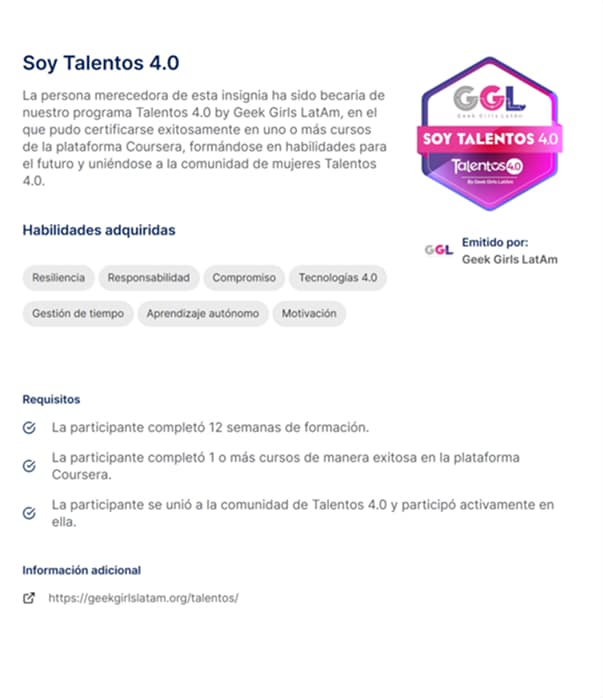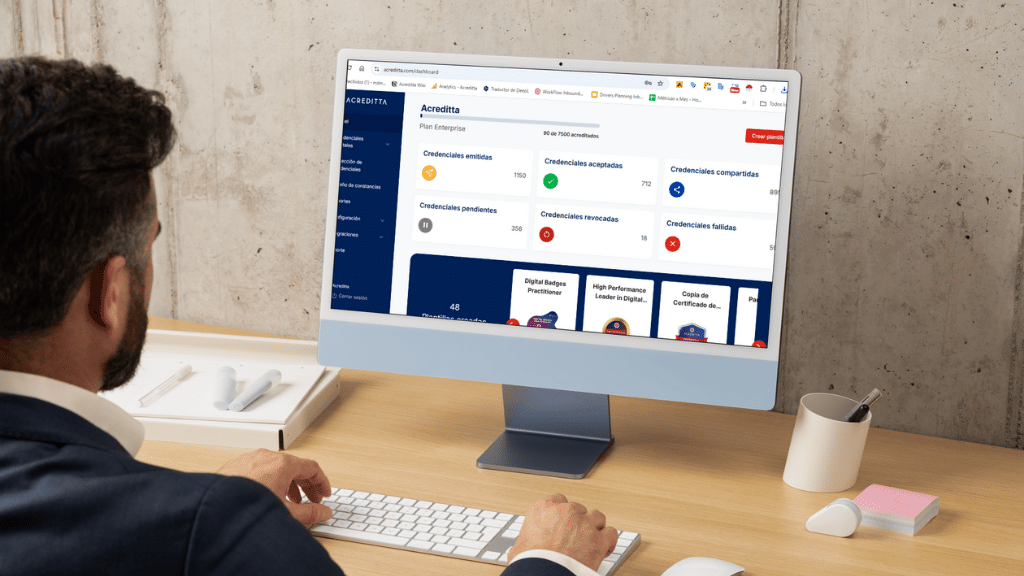What are the digital certificates?
Digital certificates are an optimal method to validate extensive educational courses and programs. Its support in blockchain technology ensures the integrity and authenticity of the achievements and recognitions granted by institutions and organizations, providing greater reliability in the validation process.
They are customizable!
We have a certificate editor with which you can create attractive templates that are consistent with your organization’s brand line. You can also add and distribute the fields you prefer.
What information do they contain?
Stamp
Emblem that complements the achievement or recognition granted through the certificate.
Issuing entity
The organization, institution or company that grants the credentials.
Obtaining criteria
The specific requirements that an individual must meet to receive the credentials.
Date of issue
The date the credentials were granted.
Credential description
A brief description of what the credentials represent and the demonstrated skills.
Link to evidence
Links or references to evidence that supports the achievement represented.
Quality standards
The standards that guarantee the legitimacy and validity of credentials.

Related Posts

11 key features that a digital certification platform must have
Nowadays, having an efficient digital certification platform is essential for educational institutions and organizations. Finding the right solution requires evaluating factors such as objectives, budget, and additional benefits. To make…

10 ways to improve your employees’ training programs
Finding and retaining qualified talent is one of the biggest challenges for organizations today. In fact, 87% of companies report difficulties in this area. Instead of relying solely on external…

5 Effective Ways to Build Trust in Digital Badges
Nowadays, where skills are constantly evolving, digital badges have become a fundamental element for validating skills and knowledge. However, for these credentials to have a real impact in the…


